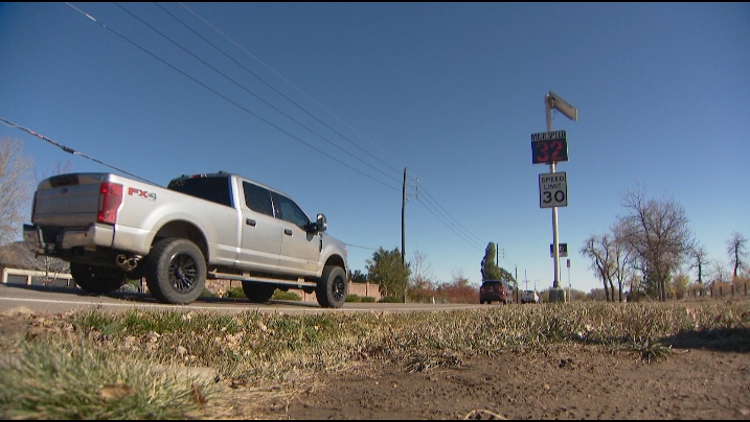
COLORADO, USA — The automated radar signs outside Wheat Ridge High School warn drivers they’re going too fast, but that doesn’t always mean they’ll slow down. "If the flashing lights sign isn’t going to change your behavior, maybe getting a ticket in the mail will," said Alex Rose, Public Information Officer with the Wheat Ridge Police Department. Wheat Ridge is the latest city to take advantage of a new Colorado law expanding the use of photo radar technology.
The city council there approved the use of the technology earlier this year. More police departments are watching while you’re driving. There won’t be a cop on the side of the road, but more cameras in more places will know when you’re speeding, and you’ll pay for it too.
"At the end of the day, this is about making our streets safer in Wheat Ridge and getting people to slow down," Rose said. Up until last year, Colorado law stated speed cameras could only be used in school zones, neighborhoods, construction zones and along roads bordering parks. Now they can be used anywhere a city or county designates a speed corridor.
A city or county can’t just designate anywhere a speed corridor to put up a radar camera. State law requires they provide speeding and crash data, post signs and tell CDOT and state patrol. Some cameras will be installed permanently while others will be mobile and moved around.
"We’ve been collecting data over the past two years in this city going street by street, corridor by corridor and seeing where the problem areas are," Rose said. Wheat Ridge isn’t the only one making the most of the new rules. Morrison gave out more than 10,000 $40 tickets in just two weeks after installing cameras in May .
Fort Collins will start writing tickets on its newly created speed corridors at the end of the month. And towns like Mountain View pay nearly 30% of the money made from speeding tickets back to the technology company that provides the cameras. If the town writes 750 citations in a month, it pays more than $8,000.
If the number of citations rises to 7,500 for example, Mountain View pays nearly $85,000. "We’re happy to tell people where these things are," Rose said. "At the end of the day, this isn’t about catching you off-guard.
This is about slowing down the speeds on our roads." Safer roads and more cash for the cities that use the cameras. A win-win, unless you’re speeding.
.














